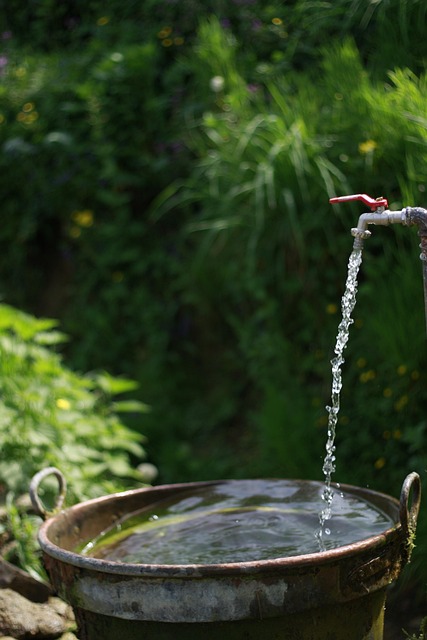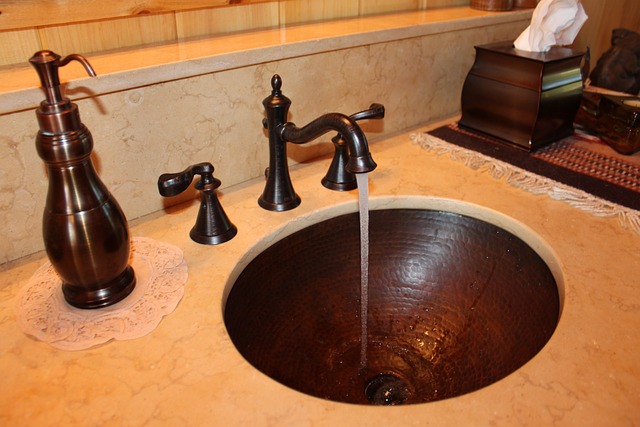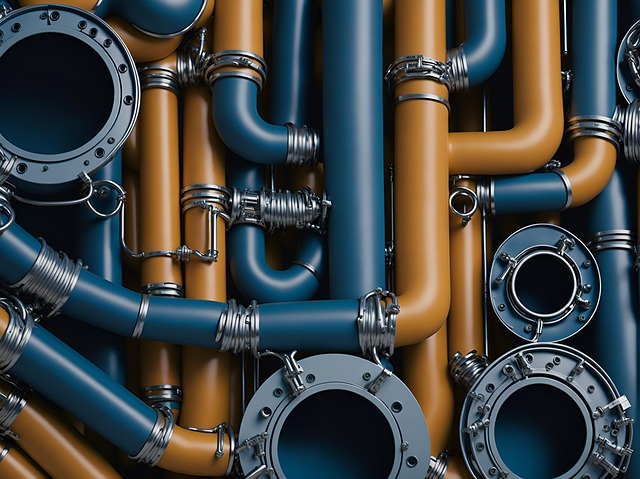In an era focused on sustainability, adopting eco-friendly plumbing solutions like low-flow fixtures, tankless heaters, rainwater harvesting, and smart monitoring is vital for environmental preservation. These innovations reduce water usage, energy consumption, and costs while fostering a greener future. By combining these practices, communities can enhance resilience to climate change impacts and promote efficient resource management.
In today’s world, responsible water usage is a pressing environmental concern. With ever-growing populations and changing climate patterns, exploring sustainable solutions for irrigation is crucial. This article delves into effective strategies to reduce our water footprint, focusing on eco-friendly plumbing solutions. From low-flow fixtures and tankless heaters to harnessing the power of rainwater harvesting, we explore smart monitoring techniques that promote responsible water use. By adopting these sustainable materials and practices, communities can contribute to a greener future.
- Understanding the Impact of Water Usage on the Environment
- Exploring Eco-Friendly Plumbing Solutions for Homes and Communities
- The Role of Low-Flow Fixtures and Tankless Heaters in Conserving Water
- Rainwater Harvesting: A Sustainable Approach to Irrigation and Beyond
Understanding the Impact of Water Usage on the Environment

Water is a precious resource, and its usage has profound environmental implications. In today’s world, where sustainability is paramount, it’s crucial to understand how our daily choices impact the planet. Traditional water irrigation systems contribute significantly to water wastage and ecological strain. The good news is that by adopting eco-friendly plumbing solutions, we can make a difference. Install low-flow fixtures in your home or office to reduce water consumption without compromising functionality.
One innovative approach gaining traction is rainwater harvesting. This method collects and stores rainwater for various purposes, including irrigation. Additionally, tankless heaters, known for their energy efficiency, minimize hot water wastage, further promoting sustainable practices. Smart monitoring systems can track and optimize water usage, ensuring every drop is utilized effectively. Embracing these technologies not only benefits the environment but also leads to long-term cost savings.
Exploring Eco-Friendly Plumbing Solutions for Homes and Communities

In today’s digital era, folks are increasingly exploring eco-friendly plumbing solutions to reduce their water footprint and contribute to a greener future. One of the most direct ways to achieve this is by adopting low-flow fixtures in homes and communities. These innovative designs, such as efficient showerheads and faucets, significantly reduce water usage without compromising on performance. Additionally, integrating tankless heaters into plumbing systems minimizes energy consumption associated with heating water, further enhancing sustainability.
Beyond individual homes, rainwater harvesting is gaining traction as a powerful tool for sustainable water management. By collecting and storing rainwater from rooftops, communities can cultivate resilient water supply networks that reduce reliance on traditional water sources. This not only conserves precious resources but also promotes the use of sustainable materials in plumbing infrastructure. Moreover, smart monitoring technologies play a pivotal role in optimizing water usage, ensuring every drop is utilized efficiently, and facilitating proactive maintenance through real-time data insights.
The Role of Low-Flow Fixtures and Tankless Heaters in Conserving Water

The adoption of eco-friendly plumbing solutions plays a pivotal role in preserving our planet’s precious water resources. One of the most effective strategies is the implementation of low-flow fixtures, such as aerators and high-efficiency toilets. These innovations significantly reduce water usage without compromising performance, making them essential components in any water conservation effort. By limiting the flow at each faucet and toilet, households can cut down on their water footprint, thereby conserving this vital resource for future generations.
Additionally, tankless heaters are transforming the way we heat water, promoting sustainability in homes and businesses. Unlike traditional storage tanks, these heaters provide hot water on demand, eliminating the energy-intensive process of constant heating and storage. This not only reduces water wastage but also minimizes energy consumption, leading to lower utility bills and a smaller environmental impact. Combining low-flow fixtures and tankless heaters with innovative rainwater harvesting systems and smart monitoring technologies creates a comprehensive approach to sustainable water management.
Rainwater Harvesting: A Sustainable Approach to Irrigation and Beyond

Rainwater harvesting is an innovative and eco-friendly approach to irrigation that has gained significant traction in recent years, thanks to its numerous environmental benefits and potential to revolutionize water management. This ancient practice involves collecting and storing rainwater for various purposes, including agricultural and residential landscaping. By harnessing nature’s gift of rain, individuals and communities can reduce their reliance on conventional water sources, which is particularly crucial in regions facing water scarcity or experiencing the impacts of climate change.
Implementing rainwater harvesting systems goes beyond just irrigation; it promotes sustainable living practices. Homeowners can install eco-friendly plumbing fixtures like low-flow showerheads and tankless heaters to minimize water wastage. These smart monitoring solutions allow users to track their water usage, encouraging conscious consumption. Moreover, the harvested rainwater can be utilized for various non-potable applications, such as garden watering, car washing, or even toilet flushing, further reducing the strain on local water supplies. This holistic approach to water management ensures a more sustainable future, where resources are conserved and utilized efficiently.
